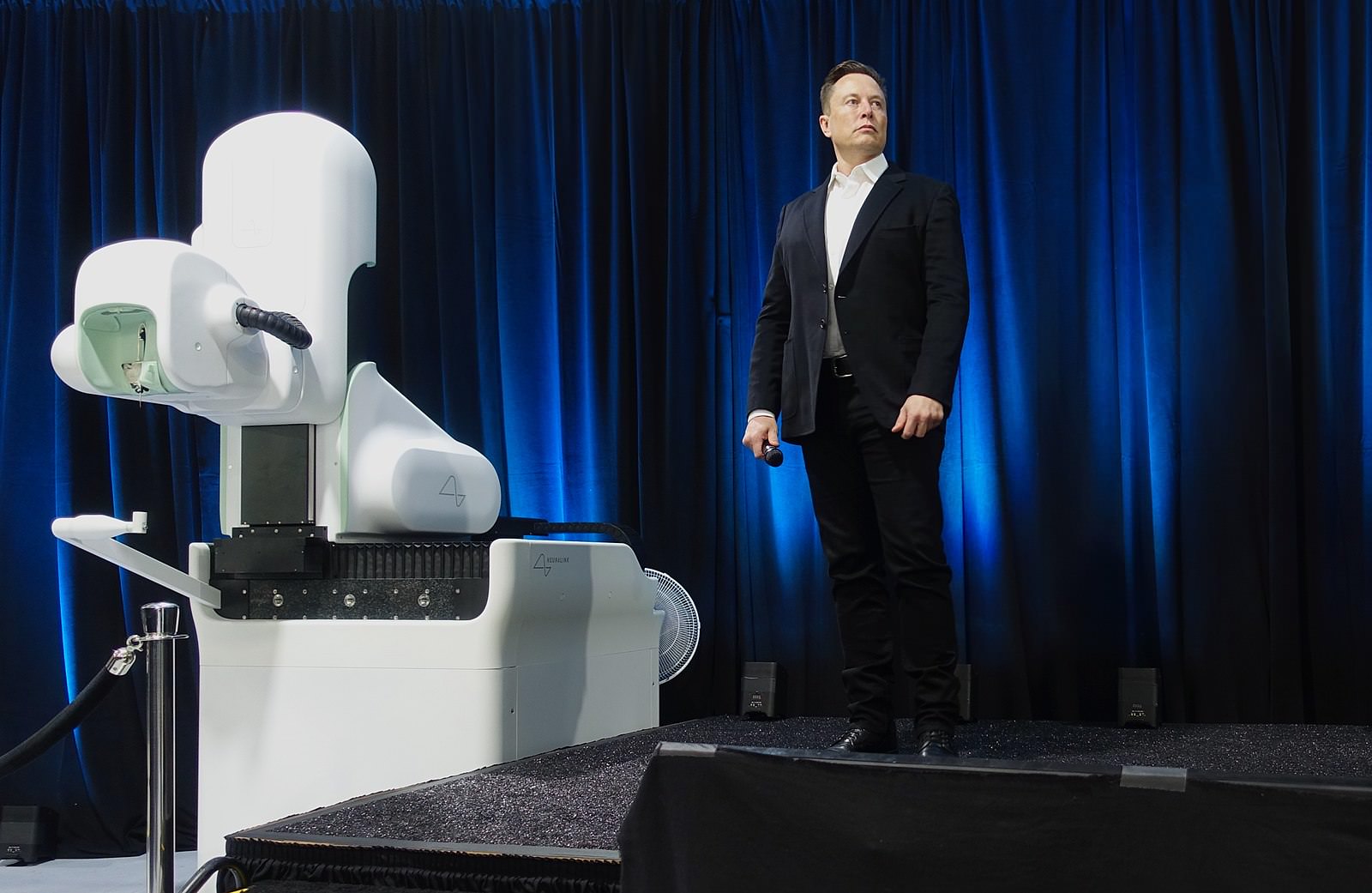Business
Elon Musk: First human receives Neuralink brain implant
By Jake Beardslee · January 30, 2024
In brief…
- Elon Musk announced first human received experimental Neuralink brain implant over the weekend
- Patient is "recovering well" but few details given on identity, safety, or effectiveness
- Device is meant to allow thought control of computers to help people with spinal injuries
- Little known about risks and experts caution implant is still unproven technology

According to Tesla and SpaceX CEO Elon Musk, the first human has received an experimental brain implant from his neurotechnology company Neuralink. Musk announced in a post on X that the patient received the device on Sunday and was “recovering well.” He stated that initial results from the implant show promising detection of neuron spikes.
Musk did not provide details on the identity of the patient. Neuralink had previously announced it was seeking individuals with severe spinal cord injuries or Lou Gehrig’s disease for early clinical trials of the device.
The implanted device is coin-sized and designed to be placed in the skull, with ultra-thin wires inserted directly into the brain region that controls movement intention. The goal is to allow thoughts alone to control a computer cursor or keyboard. Musk stated the first Neuralink product is called “Telepathy” and will let users control devices “just by thinking.”
Little is known about the safety or effectiveness of the Neuralink device or similar brain-computer interfaces. While the surgical technique is innovative, the implantation carries risks like hemorrhage or seizures, according to neuroscientist Laura Cabrera, The Associated Press reported. She also expressed concerns that Musk has discussed using the technology for more than just medical applications.
Neuralink has not released additional statements beyond Musk’s post. The company received FDA approval to begin clinical trials, though specific details remain unconfirmed. There are over 40 brain-computer interface trials underway, as groups explore potential applications for treating disabilities, injuries, and other conditions.